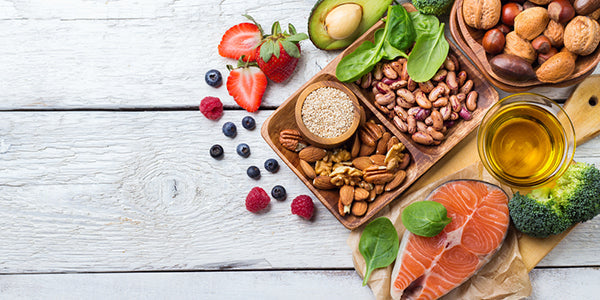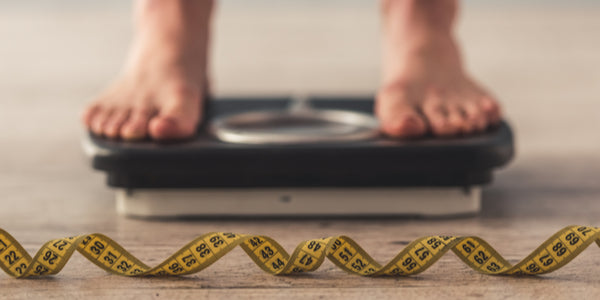
Nutrition Myths and Facts
Claim #1: Eating smaller, more frequent meals result to more weight loss than fewer, larger meals.
The Truth: Perhaps one of the largest misconceptions for weight loss and metabolism is the theory that small, more frequent meals accelerates metabolism and leads to greater results. But when it comes to metabolic health, the focus on whole, nourishing foods are superior to meal frequency, as foods still must undergo the mechanics of digestion and absorption. Nutrition experts further encourage the practice of portion control and moderation of serving sizes.
Claim #2: "Sugar-free" products are considered healthy.
The Truth: Gravitating towards sugar-free products may be one of the largest healthy food myths. Yes, the overconsumption of sugar is a continuously growing health concern, but choosing sugar-free alternatives may not be the wisest solution. Sugar-free products mostly become filled with artificial sweeteners and additives to compensate for the absent sugar. Additionally, fat-free products are also loaded with sugar.
Claim #3: Dietary fat turns into body fat.
The Truth: Sure dietary fat can turn into body fat, but so can excess carbohydrate and protein. Weight gain is mostly attributed to excess food consumption, despite the source. Dietary fat is imperative for good health and the greatest focus should be on moderating its intake and incorporating healthy fats, including fatty fish, nuts and seeds, and olive and canola oils, while minimizing fried foods and high-fat snacks and desserts.
Claim #4: More protein = more muscle.
The Truth: Yes, protein is imperative for muscle synthesis and the promotion of lean body mass. But more does not necessarily mean better, as overdoing protein intake can lead to opposing outcomes of potential weight gain as mentioned above regarding dietary fat. Though intake may be greater in active and aging individuals, 0.8 grams of protein per kilogram of bodyweight is a general reference for daily protein intake.
Claim #5: Avoid the yolk to reduce cholesterol levels.
The Truth: Though the debate on whether the chicken or egg came first lives on, avoiding the yolk has become a myth of the past. New evidence suggests dietary cholesterol is not the instigator of high blood cholesterol, but rather the cultivation of a diet high in saturated and trans fat and low in fiber and other valuable nutrients.
Claim #6: Sea salt is better than table salt.
The Truth: Coming from the ocean, sea salt is inferred as a more natural product than the salt sitting on the dining table. While sea salt is touted to enrich flavor deeper than table salt, it is important to remember it still provides equal parts of sodium and should remain controlled.
Claim #7: You should choose brown over white sugar.
The Truth: The notion of choosing brown over white sugar may be related to the suggestion of selecting brown rice over white. However, brown sugar is essentially white sugar with added molasses, ultimately providing its darker appearance. And while molasses does supply a trace amount of minerals, the nutrients are so miniscule and does not overrule the fact sugar is sugar and must be moderated. Despite the type, the American Heart Association recommends added sugar should be limited to six teaspoons for women and nine teaspoons for men per day.
Claim #8: Raw veggies are more nutritious than cooked ones.
The Truth: Individuals commonly believe cooking veggies results to a lesser nutritional content, thus making their raw variation a more healthful pick. Interestingly, most evidence shows beta-carotene, found in carrots and other red, yellow, and orange-colored fruits and veggies, increases after boiling or steaming while vitamin C products may lose their concentration. While microwaving and significantly high heat may leach out some nutrients in veggies, the fact of the matter is this: Any veggie is but than no veggie!
Claim #9: Cleanses detox the body.
The Truth: From their perceived ability to "reset" the body to provoking quick weight loss, the misconceptions surrounding detoxes are abundant. But nutrition experts encourage such believers to avoid purchasing pricey pills and supplements and save their money, as detoxes are free of charge all thanks to the detoxers the body already owns, including the kidneys and liver!
Claim #10: Everyone should eliminate gluten in their diet.
The Truth: Over the past few years, gluten became not just feared, but completely dismissed in diets in belief doing so attributes to health. However, unless diagnosed with Celiac disease or a wheat allergy, ridding gluten products is not exactly necessary. While reducing carb intake can facilitate weight loss, getting rid of gluten-containing foods without such warrant poses nutritional concern, as a large load of such products (including those produced from wheat, barley, and rye) also offers valuable fiber, B vitamins, and other nutrients.





